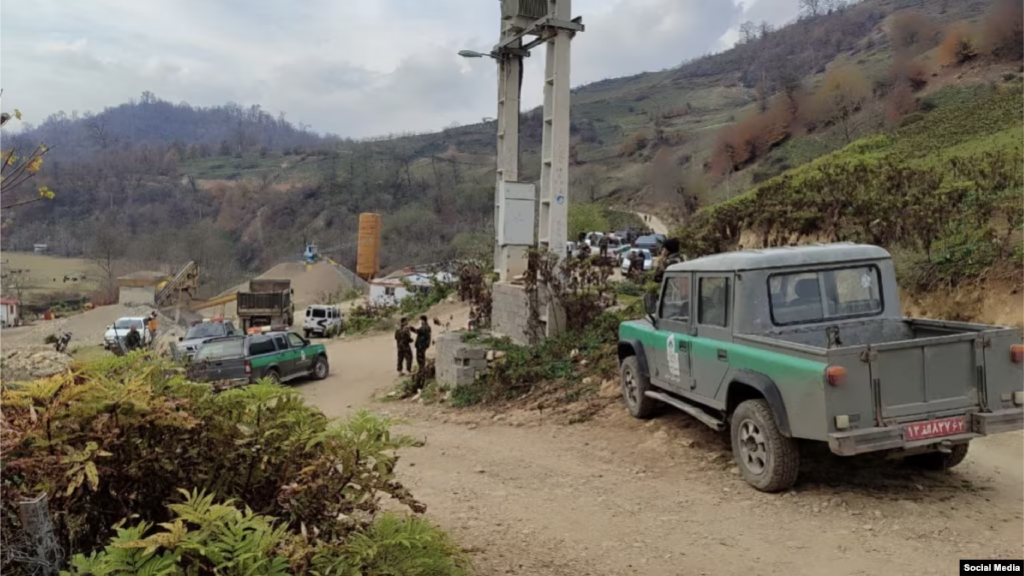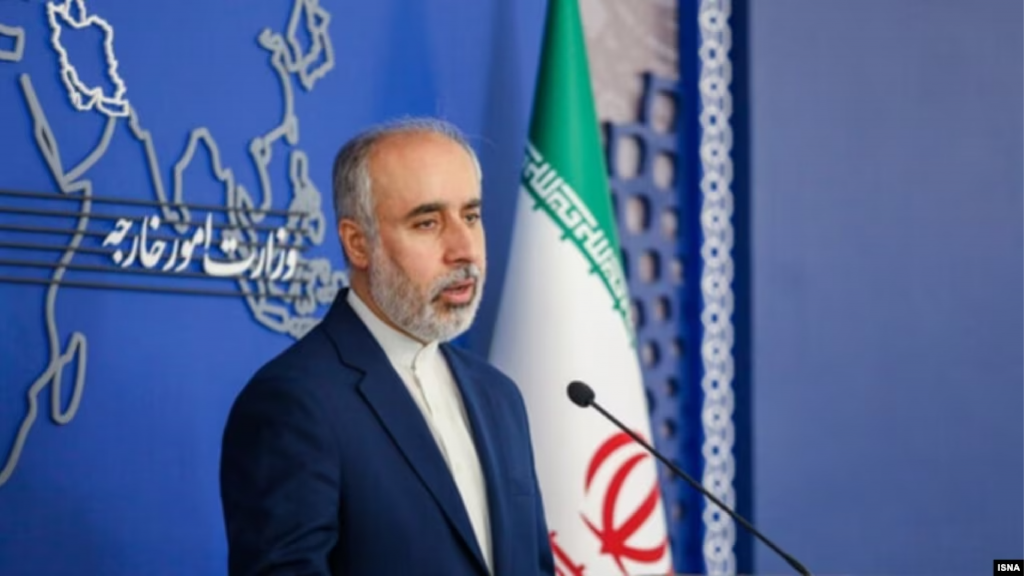
Taxation Or…?
The editorial of Etemad by “reformist” analyst Abbas Abdi argues that the government is trying to cover up its own incompetence in resolving issues by increasing taxes on people unfairly.
Iranian statesmen’s perception of taxation must completely change. In fact, taxation does not mean stopping travelers by force and robbing them of all their belongings! It is rather like buying bread and water: we pay our money for receiving important services and goods. So paying taxes is for purchasing goods and services.
These goods and services cannot be provided by anybody but the government and the establishment: security, justice, legislation, planning, healthcare, public education, monetary policymaking, foreign policy, etc. People need these services for which they pay taxes.
So increasing taxes must be a justifiable move: it means that there must either be an increase in the services offered by the government, or a justified decrease in the government’s revenues which must be compensated by taxation.
The Iranian government’s efforts to increase taxes are not transparent and acceptable. Just to be fair, taxation on foods is additionally unfair – an act which started during previous governments. The skyrocketing inflation rate is the most unfair as it goes up because of the increase in liquidity.
It is not clear what services are provided to people by the government for the taxes that are directly and indirectly increased. The government is obviously trying to cover up its own incompetence. How? It cannot run its foreign affairs in way that would resolve the issue of the sanctions — which has eroded the country’s revenues.
In other words, it tries to compensate for its incompetence in selling oil by increasing taxes on people. Moreover, as a result of this incompetence and the imposed sanctions, the costs of imported goods rise. More importantly, because of the sanctions, there is no investment in the country’s infrastructure. And they are after compensating this by imposing more taxes.
They are going to increase taxes, but they are not going to increase the level of services: the quantity and quality of education, healthcare, security, public transportation and even internet services have remained the same or have worsened. But prices and taxes are on the rise.
On the Decline in Trust in Ballot Boxes
The editorial of Arman Melli penned by “reformist” academic Sadegh Zibakalam explains why Iranian voters have lost their trust in voting in general.
The circumstances in society do not imply that the Guardian Council is going to act more moderately and show more flexibility to allow “reformist,” independent or more moderate candidates to run for the upcoming parliamentary elections to make it less dominated by the “hardliners” and “principlists.”
Some “principlists” talk and act as if the Guardian Council is not going to impose some of its previous restrictions. But it seems that it does not matter if the council imposes less restrictions or if the “reformist” candidates are allowed to run in the upcoming elections. The main issue is that there are questions among educated groups in society, as well as the so-called Gen Z, as to whether voting can create any changes at all. They ask: can voting in the presidential or parliamentary elections bring about any changes?
Right or wrong, the trust of the younger generations and groups has been damaged by ballot boxes. And this is not a recent issue. In 2017, people overcame their uncertainties and went to the ballot boxes, which led to the election of former President Hassan Rouhani. The former president’s 24 million votes surprised many: 60% of qualified voters participated in that election.
But Rouhani’s performance in his second term, and other parts of the establishment acted as if those votes did not matter at all. Even in his speeches, Rouhani did not talk as if he was going to honor people’s votes, nor did he even pretend that he was going to make some moves to satisfy those 24 million people who voted for him.
So it does not matter if the Guardian Council acts flexibly to allow more independent and experienced candidates to run. Educated groups and young people have lost their trust in voting, and are questioning the usefulness of going to the ballot boxes at all.
Impact of Russian Companies on Iran’s Energy Projects
The editorial of Tejarat written by former MP Hedayatollah Khademi urges that Russia’s role in developing Iran’s oil and gas projects has been limited.
The level of oil and gas cooperation with Russia is not so notable. The Russians implemented a few small projects on the land for which Iran itself had the necessary tools, equipment and knowledge. For cooperation with foreign countries and investment in gas and oil projects, Iran usually tries to focus on joint fields or offshore fields that are more costly and require more capital and higher technology.
So far, many foreign companies have been cooperated with Iran to develop different projects, but the Russians have come to Iran and formed consortiums or joined some Iranian companies just to implement some projects on the land.
Iran’s priority is joint fields, but these Russian companies intend to do simple tasks which do not require any equipment or technology. Above all, Russian companies sometimes do not pay contractors on time.
So it makes no difference if Russian companies take part in oil and gas projects at all, because Iran’s capital and technology suffice for developing projects, rendering the presence of these foreign companies unnecessary. In practice, some Iranian companies that cooperate with the Russians have to work without getting paid on time.
The other issue is that the Russians have good relations with Arab countries including the UAE and Saudi Arabia that are Iran’s rivals in oil and gas. Saudi Arabia imports diesel from this country, while the UAE too imports oil products from Russia.
Russia-Iran cooperation in oil and gas has been so small and only on the land, and if these projects were developed by Iranian themselves, it would have probably been more cost-effective. What we have seen in this cooperation so far is not very promising.
Cost of Circumventing Sanctions
The editorial of Setareh Sobh argues that the imposition of sanctions on Iran has resulted in a lack of transparency in financial transactions, creating ubiquitous economic corruption.
For two decades, Iran has been under severe sanctions, and for the same reason, it has been disconnected from the international banking system. Under these circumstances, circumventing sanctions has paved the way for economic corruption to take root in the country.
In untransparent transactions, it is impossible to follow the transfers of money, because such transfers are done through a third party. There are always untransparent hands behind the financial transactions, who are driven by their own interests rather than national interests.
During the sanctions period, money changers and other ways of transferring the money have considerably grown, creating untransparent and unofficial paths for circumventing sanctions.
As a result of sanctions, economic corruption has skyrocketed in Iran because ways for evading sanctions require underground and confidential methods. A healthy economy cannot tolerate a lack of transparency, while circumventing sanctions relies on secrecy.
Circumventing sanctions prepares the ground for economic corruption, which is why the main outcome of sanctions in Iran is what has happened to transparency and the ensuing corruption.
As we have heard and seen in recent years, in cases of corruption and embezzlement, the main suspects have been the heads of the companies created for circumventing sanctions in and out of the country.
Insofar as there are sanctions, there will be corruption, while opportunistic people make huge amounts of money for themselves. Lifting the sanctions will pave the way for investment and economic prosperity in the production sector, thus reforming financial infrastructure, transparency and heightening the monitoring of economic activities.

Internet Costs Rise Over 30% in Iran

The Communications Regulatory Authority (CRA) issued a statement announcing a 30% increase in internet service rates in Iran — a country where severe restrictions have been consistently imposed on people’s access to the internet.
Following this announcement, new internet packages have been offered for 6,000 tomans per gigabyte which is a considerable rise compared to its former price; that is, 2,000 tomans per GB.
According to Ham Mihan daily, the increase is much more than what has been stated, namely “at least 34% and at most 48%: “The 15 GB packages which used to be 62,000 tomans have now jumped to 118,000 tomans. This is more than the previously announced 34%.”
Criticizing the price rise, former ICT Minister Mohammad Javad Azari Jahromi, noted such measures would only widen the gap between people and the Iranian establishment.
In the same vein, parliamentarian Fathollah Tavasoli said internet quality is “already poor in our country” and if its price hikes too, it will only lead to public frustration.
Former MP Heshmatollah Falahatpisheh lambasted the price hike as well, connecting it to financial corruption in the country. “Those who are thinking of maintaining their wealth and power will benefit from the increase of internet prices,” he pointed out.
Falahatpisheh highlighted the connection between corruption and wealth and power; “that is why we see that even an individual who criticizes corruption is challenged or confronted by some.”
Another critic, political activist Abbas Abdi questioned the timing of this sudden increase and said it has taken place before the Iranian new year: “Apparently they are raising the cost of the internet, communications, red and white meat this year, because the next year is already full: they plan to raise taxes, the cost of electricity, gas, petrol and…”
Four Men and One Woman Executed in Iran on Charges of “Espionage” for Israel

Iran’s judiciary announced the execution of three men and one woman for “enmity with God and corruption on earth through espionage” for Israel.
Vafa Hanareh, Aram Omari, Rahman Parhazou and Nasim Namazi were executed in Orumiyeh prison in West Azerbaijan only four days after their sentence was confirmed by the Supreme Court and their lawyers had appealed for a retrial which was under review.
Mizan News Agency, affiliated with Iran’s judiciary, claimed that the executed individuals had “set fire to the vehicles and houses of some officials related to the Islamic Republic intelligence institutions” and sent the images to Mossad and “were paid for it.” The judiciary news agency also said those individuals had participated in an attempted assassination of intelligence and security officials in Iran.
However, Kurdistan Human Rights Network released two audio files from two of those individuals before their executions, Aram Omari and Vafa Hanareh, in which they vehemently deny any relations with Mossad, saying they were forced to confess under torture.
In one of those files, Omari says, “Who is Mossad? Show me his picture,” and the interrogators laugh in response.
In a telephone call from prison, Omari also remarks that he has been in solitary confinement and subjected to torture for several months, “They have fabricated something and want to ruin me. I have a wife and kid. I have a three-year-old daughter.”
The four individuals were executed only one day after Razi Mousavi, a senior IRGC Quds force commander, was buried after being killed in Syria. Iranian officials had threatened to take “revenge” on Israel for killing Mousavi.
Member of the managerial board of Kurdistan Human Rights Network Rabin Rahmani told BBC Persian that the execution sentence was confirmed immediately after Mousavi was killed; “such haste shows the retaliatory nature of these executions.”
40 Acres of Baha’is’ Lands Confiscated in Mazandaran Province

Iranian security forces have reportedly confiscated almost 40 acres of lands belonging to Baha’i citizens in Ahmadabad village, Mazandaran Province.
According to sources, 200 security and special unit forces had gone to this village whose residents are mostly Baha’is on Sunday, blocking all entrances and exits to the village. The cellphones of the villagers who tried to film this incident were also seized.
Confiscating Baha’is’ properties is a part of the Iranian government’s systematic oppression of this religious minority in Iran.
In this regard, last year, the houses of Baha’is in Roshankooh village in Mazandaran were destroyed again and the farming lands of multiple Baha’is were confiscated.
In the meantime, 147 civil and political activists in Iran issued a statement calling for an end to the new wave of crackdowns on Baha’is in the country.
In this statement, called “Put an end to this disgraceful act,” these activists have protested against the Iranian government’s policies of elimination toward Baha’is.
The statement points to a part of measures taken against Baha’is including banning registration of their marriages, banning them from studying or having a job, exhuming Baha’is’ corpses and disposing them in the desert, confiscating the properties of poor Baha’i villagers, raiding their private festivals, arresting them, and issuing heavy sentences against them.
The signatories of the statement also condemned the new waves of arrests of Baha’is and depriving them from their basic human and civil rights and called the Iranian government’s measures against Baha’is “brutal and inhumane,” demanding that all social and political activists in the country voice their support for Baha’i citizens.
The Iranian establishment does not recognize the Baha’i faith. Accordingly, Iranian judicial officials have repeatedly accused Baha’is of being “spies and enemies,” issuing heavy sentences of the death penalty, arrest and imprisonment against them as well as blocking their access to education, employment and commercial activities.
Tehran Welcomes Joining BRICS

Iran’s Foreign Ministry welcomed its full membership in a group called BRICS led by China and Russia.
Iranian Foreign Ministry Spokesperson Nasser Kana’ani announced on Monday that “from today Iran is a full member of BRICS group,” adding that BRICS, as a multilateral mechanism, will definitely provide more opportunities for Iran in international relations.
Since the beginning of the new year, Russia has taken charge of the periodic presidency of BRICS.
The common demand of the members of BRICS — that comprises of one fourth of the world’s wealth and 42% of the world population — is “a more widespread global political and economic balance particularly against the United States and the EU.”
The Russian presidency of BRICS and Iran’s membership in this group come at a time when recently both countries’ relations have been impacted by Russia’s support for the UAE’s position regarding the ownership of the three islands in the Gulf.
Moscow has backed Abu Dhabi in this regard, calling for these islands’ case to be referred to the International Court of Justice.
Iranian officials see the full membership of Iran in BRICS as a positive international development, but experts hold that the existence of international sanctions against Iran is still a big hurdle in the path of global trade with Iran.
While China, Russia, India, Brazil and South Africa — as emerging economies — are members of BRICS, this group is after increasing its member countries and global influence.
According to the statement released on the Kremlin website, Russian President Vladimir Putin stated that about 30 countries are ready to join BRICS.
Meanwhile, Argentina recently withdrew its request for joining this group.
